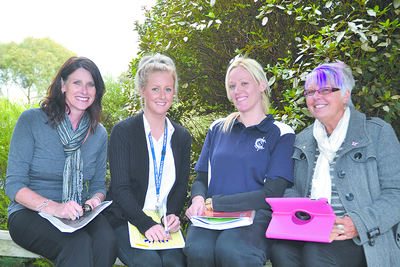A GROUP of Gippsland schools hope to increase student outcomes by bridging the gap between pre-service and in-service teachers.
Basking in the success of the Professional Development for Churchill and District Government Primary Schools pilot program, teachers of those cluster schools are witnessing the benefits of implementing an “applied feedback” teaching method.
Teachers from Boolarra, Churchill, Churchill North, Hazelwood North, Yinnar and Yinnar South primary schools were recently involved in a curriculum program which focused on deepening the understanding of, and embedding the use of, assessment practices in schools.
For Churchill North Primary School principal Debbie Edwards, the pilot program has proved a success within the six schools.
“Often teachers just teach… and don’t understand where the learner is going and how to get them further advanced,” Ms Edwards said.
“It’s just the start of the journey, but we’re rethinking how to produce feedback to students to achieve better outcomes.
“Our teachers are also now peer-coaching as a result of the workshop… so we’re definitely seeing some positive changes.”
The six Churchill and district schools are currently part of the Churchill cluster, with funding for their program to expire end of this year.
The schools are however hoping the Department of Education will extend funding for the program, and are aiming to secure a grant from the Ian Potter foundation, to implement a new strategy within their schools.
This strategy aims to build partnerships with pre-service teachers, particularly students undergoing study in teaching at universities such as Monash Gippsland.
Ms Edwards said if the grant was secured, it would encourage these students to strengthen their ties with in-service teachers in the region.
“We’re hoping they will join us on our professional development days, so they know what we’re doing in schools and can be on the same path,” she said.
“It also promotes self-advocacy and helps with employment confidence.”
The benefits of the training programs organised by the six schools, as part of the professional development program, was echoed by Churchill North Primary School teacher Sandy Dunne.
“We just learn so much that helps in the assessment and planning for students,” Ms Dunne said.
With stronger ties now held between the six schools, Ms Edwards said it eliminated the “isolation” that many rural schools faced, and instead installed a single purpose that all the schools aimed to achieve.











